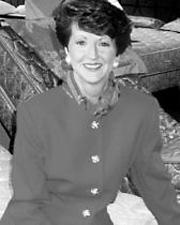Isn’t it great to live in such exciting technological times?
The Seattle City Council Budget Committee took a bold step where no legislators have gone before last week, accepting testimony by both e-mail and telephone in “an interactive, multimedia public hearing” transmitted live over the city’s cable TV channel.
The only ones unimpressed by this display of technical flash were the folks who’d actually shown up to testify in the old-fashioned way. A loud groan went up when Committee Chair Jan Drago announced that phone and e-mail testimony would be interspersed between every third live speaker. “Has anyone got a laptop?” quipped one jokester in the back.
Actually, there was no need to worry. Only three people bothered to call in their testimony (one being a wily neighborhood activist who slipped into the hallway, called in his testimony, and got home for an early dinner). Those testifying online got their full comments into the official record, although those in attendance were given just a one-sentence synopsis of the e-mail messages (or no synopsis at all, for those who happened to be testifying in favor of monorail funding).
Give or take a few “fix the streets” messages, most testimony came from representatives of feeding programs and social service agencies, who feared their programs might suffer because they were not designated as key funding priorities. (The council’s priority list includes programs affecting transportation, homelessness, affordable housing, and children.) Most took the extra wait to testify stoically. “I’m honored to be part of your technical experiment here tonight,” Laura Wells told council members, “although my family was expecting me home a lot sooner than this.”
Bait ‘n’ switch lessons
Who better to teach city employees how to serve customers right than mattress maven Sunny Kobe Cook?
Cook visited the Arctic Building’s Dome Room last week to deliver a training presentation open to all city employees. According to the building’s newsletter, her aim was to share “many of the secrets to her success in the business world.” No word yet as to whether her customer service tips included the use of deceptive advertising: SleepCountry USA coughed up $62,500 in a settlement with the state last July. The company admitted no wrongdoing, but state regulators called the company’s use of false claims “beyond the pale,” referring to such tricks as including full-price items in “sale” flyers and falsely claiming prices were “the lowest in history.”
Try, try again
The proposal to double the city’s election contribution limit is moving ahead, unless a key opponent can get the process moving backwards.
Timothy Burgess, chair of the city’s Ethics and Elections Commission, wants his colleagues to reconsider their vote to up the maximum allowable contribution from the current $400 to $800. Burgess was on the losing side of a 3-2 tally earlier this month, but thinks the two commissioners absent that day might support a less generous maximum contribution number.
If Burgess proves unable to convince commissioners to take a second look at the matter, the proposed contribution limit change would go to a council committee early next month, followed by a vote by the full council. The council is not required to hold a public hearing on the contribution limit change.
Greg’s piggy bank
After a well-publicized debut, the Greg Nickels for Mayor campaign has been all-but-invisible in recent months.
In the meantime, Nickels’ exploratory committee has been quietly collecting money, both through new contributions and from donors to Nickels’ County Council campaign who agreed to allow their past donations to be transferred. At last tally, the Nickels for Mayor effort had raised $40,539, of which $34,812 remains unspent.
Don’t count on it
The welcome mat was conspicuously absent last week when Seattle Housing Authority representatives visited the City Council to talk about their plans for West Seattle’s High Point housing complex.
The area of dispute was—you guessed it—city money. Council members told the SHA not to count on a proposed $15 million city contribution to the effort to raze and rebuild High Point. Although SHA officials would like the city to ante up for new utilities and other infrastructure fixes (as it did on the Holly Park redevelopment project), they received no guarantees from the city. “I think you should not count on utilities doing that,” council member Margaret Pageler said of the proposed infrastructure fix. “They are all facing a real capital crunch and simply cannot subsidize a lot of worthy causes.”
The High Point reconstruction is already expected to grab its share of controversy, due to plans to more than double the density of the public housing complex. The SHA proposes to up its numbers from the existing 716 public housing units to 1,600 units in a mix of housing types (and to serve residents from many different income levels). Without city participation, SHA officials warn, they might be forced to balance the project’s books by increasing the project’s density—resulting in the construction of more than 2,000 housing units at High Point.






